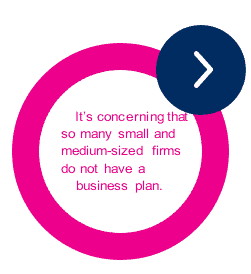When it comes to business planning, now is the perfect time to reflect on the year just gone and strategise for the year ahead. The last few years have thrown many of us challenges and/or opportunities never seen before. So how can your business go further or do better in 2024?
Below is a business planning checklist to help you when planning for the future:
-
Know Where you Stand
Does your financial reporting provide you with an accurate and timely view of the financial performance of your business? These could contain:
- Historic balance sheet, profit and loss and cash-flow together with a set of key performance indicators (KPIs) that the management team use to run the business on a day to day basis.
- Rolling forecast balance sheet, profit and loss and cash-flow driven by the same KPIs. Even a static annual budget is better than no target at all.
-
Analyse
Have you analysed all of your products or service offerings and identified those that should be invested in and those which should be scaled back to improve the performance of the business?
-
Review Costs
Have you reviewed all of your costs and identified all of those costs where alternative suppliers can be identified and current deals can be renegotiated? This helps to minimise your cost base and refine your negotiation skills. Are there possible savings from systems and/or process streamlining?
-
Review Customers
Have you reviewed all your customers and identified the good ones form the bad ones i.e. those that take ages to pay and/or beat you down on price etc.? It may be time to let the bad ones go and focus on the ones you want.
-
Assess Risk
Have you assessed all of the obvious risks in your business and made sure that you have a contingency plan in place to avoid those with the highest likelihood and most significant impact?
-
Your Personal Goals
Take the time to really reflect on why you started the business, are those goals still the same today and are you getting closer to achieving them?
Plan:
Once you have considered the above, you are ready to start planning. A clear operational plan for the future of the business, which shows you the steps required to implement that plan is the best road to success. If you do not have this it will be impossible to identify opportunities that arise next year that fit your plan for the business.
Most of our clients have been through this process with our guidance and as a result many are now looking to exploit the opportunities, to expand their markets and recruit key staff to help drive their businesses forward in 2023.
To get your business in the best shape for 2024, contact The CFO Centre on 1300 447 740.
The CFO Centre is dedicated to helping businesses meet their strategic objectives. Find out how it works by watching this short video on our website – https://www.cfocentre.com/au/how-it-works/





